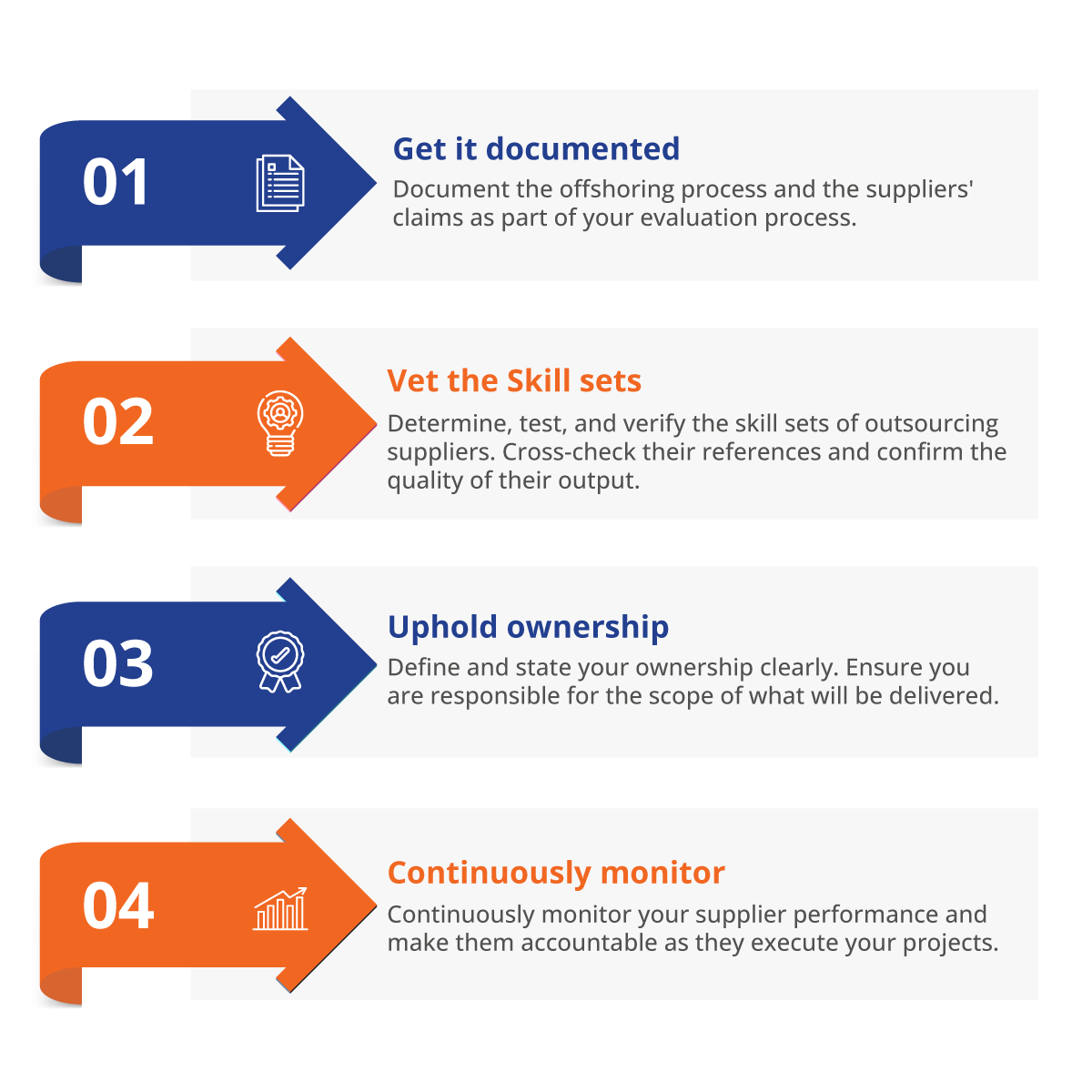Yeah right. The world has become a much smaller space. Thanks to offshoring. You are no longer restricted to your home ground or operating in your local market. You can now quickly expand your business operations, start new branches in various cities or countries, stay connected, and yes, you can save labour costs.
But only if you do it the right way.
In this blog, we take you through some of the success stories you can learn from and the misconceptions to unlearn.
Let’s get started.
The Impact
The impact of offshoring and outsourcing around the world is tremendous. It is no longer just on the firm or organisation level but goes beyond, impacting even a country’s economy. For example, according to the March Board Report, nearly 9% of the Philippines’ GDP comes from business outsourcing solutions, that’s almost a tenth of the country’s economy.
According to YouGov research, nearly 70% of B2B companies in the UK prefer the offshoring model and outsource key operations. The key outsourced services are IT Support (34%), payroll (28%), accounting (24%), and printing (24%).
Approximately 80% of the tech giants globally have an offshore team in one country or the other.
Offshoring Success Stories
Offshoring has become an increasingly popular strategy for businesses looking to reduce costs, access specialised expertise, and expand their operations. Here are a few examples of how companies leveraged offshoring to stay competitive and achieve growth in the global economy.
Here’s a classic example of how offshoring can help a business (whether a startup or an MNC) enable growth and success. In 2020, Google launched its R&D center in Ukraine on the foundation of CloudSimple, which it had acquired earlier. Being a part of Google Cloud, CloudSimple enhances its VMware migration offering. Lack of competence was not a factor in the decision to go offshore. However, Google wanted to reduce its business expenses through offshore hiring significantly.
The key takeaway from this offshoring is that even if you have the world’s largest workforce, there is always room for improvement and innovation.
Offshoring allows your internal staff to concentrate on the issues that are most important to your company at that particular moment. Before WhatsApp was introduced in 2009, the business outsourced its software development to Eastern Europe. While their in-house engineers were focused on client-related responsibilities, such as customer assistance, WhatsApp relied on offshore expertise for backstage management, design solutions, and core app development.
As a result, WhatsApp rose to the top of Google Play and AppStore. This compelled Facebook to acquire WhatsApp for $19 billion in order to defeat its greatest rival. It was the largest venture capital-funded company acquisition at that point.
Oracle
The main objective of Oracle was to ensure the scalability of Oracle Apps support and strengthen WW intra-group logistic flows. It also wanted to control the total cost of ownership of the apps. The high-level solution was achieved through offshoring, where they had set up a global support center to replace local support teams. It created 2 regional front offices in Europe and Asia and one centralised back office in Asia with respective 20% and 80% FTE.
As an upshot, Oracle was able to achieve 15% savings on the steady state, high support scalability, and enable better alignment to regional markets.
Tips for Smooth Offshoring
Offshoring is not all hunky-dory. It has its share of challenges and pitfalls you may have to be aware of. Here are a few simple yet effective tips to help smooth the offshoring transition.

1. Start Small
Large offshore teams can be challenging to manage, especially if you have no prior outsourcing experience. So, it is preferable to begin offshore with a small staff that is simpler to manage. Later, as the company needs change, you can expand your offshore team.
2. Balance the Scope
Balancing the scope is tricky. The affected employees and managers will attempt to narrow the extent of the engagement, while the offshore supplier will make an effort to broaden it. Sometimes the project team gets caught in this tug of war. Any changes will have an effect on the people involved, the consultation procedure, the business case, and the project plan. Be firm and unambiguous about your view on scope, and only change it after establishing a solid justification.
3. Value your In-house Team
For in-house teams, offshoring and outsourcing are frequently touchy subjects. Therefore they might not be open to this change right away. Spend some time explaining to them how this choice will affect the organisation. Be sure to convey to them the importance of their work within the organisation and that they are still valued.
4 Lessons to avoid Offshoring and Outsourcing failure
A tremendous amount of information and specific insight can be gleaned by analysing what went wrong in offshoring/outsourcing services. We present you with four lessons for business leaders which can be applied to any outsourcing agreement to avoid failures.

1. Get it documented
Document the offshoring process and the suppliers’ claims as part of your evaluation process.
2. Vet the Skill sets
Determine, test, and verify the skill sets of outsourcing suppliers. Cross-check their references and confirm the quality of their output.
3. Uphold ownership
Define and state your ownership clearly. Ensure you are responsible for the scope of what will be delivered.
4. Continuously monitor
Continuously monitor your supplier performance and make them accountable as they execute your projects.
Despite the numerous benefits of business process outsourcing/offshoring, it requires careful consideration, proper planning, and execution. Partnering with a reliable outsourcing firm is a good idea.
At Blue Helion, we can equip your business with strategies to reduce costs, scale, and enable growth. Our industry-leading outsourcing experts can help with insight-based advisory, provide executional support, and leverage the best resources to gain a firm footing in the Indian market.
Get a no-obligation free 20-minute consultation with one of our specialists.
